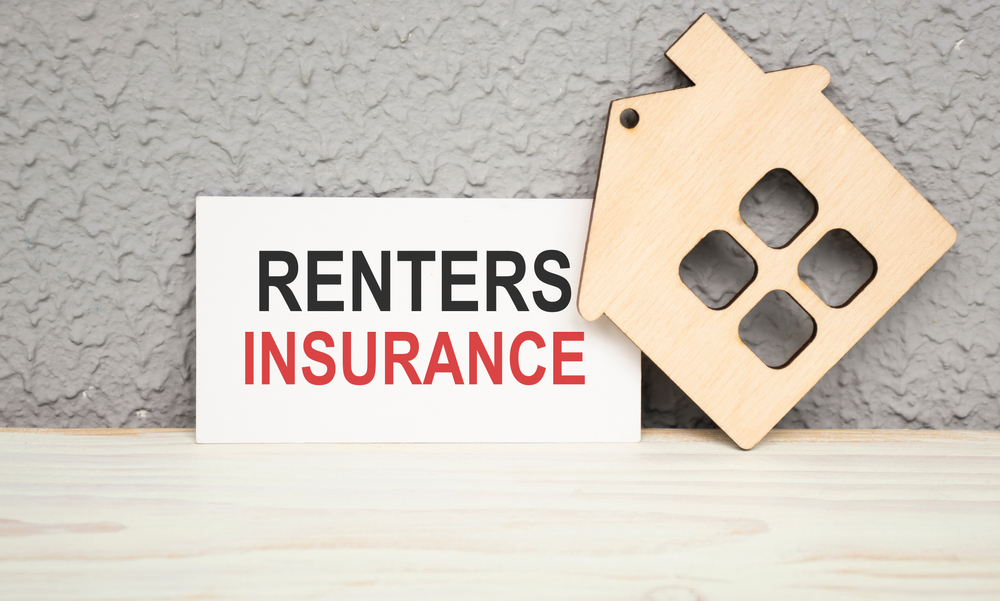
Do you rent a home or apartment? With a complete guide to renters insurance like this one, we’ll make sure you have all the information needed to understand how this form of insurance works, where to purchase it from, and what discounts to look for.
What Does Renters Insurance Cover?
Renters insurance has three main coverage parts:
- Personal Property
- Personal Liability
- Additional Living Expenses
Renters insurance is designed to provide coverage for your personal property in case of theft, fire, or other disasters. While landlords may have insurance on their property, it typically only covers the building and not your personal belongings.
Personal Liability gives you coverage for causing bodily injury or property damage to someone else. Slips, trips and falls as well as dog bites are common Personal Liability claims.
Additional Living Expenses covers some of the costs you incur if you can’t live in the home.
1. Personal Property
Personal property consists of your personal belongings and other items not permanently attached to the structure.
Examples:
- Clothing
- Furniture
- Electronics
- Jewelry
- Workout equipment
- Cookware
You’ll choose an overall limit to cover everything. However, some categories will have sub limits applied.
For example, let’s say you choose a $100,000 limit for personal property but there’s a sub limit of $1,000 for jewelry. You’ll have to separately add your jewelry that exceeds $1,000.
Sometimes you can choose between Replacement Cost and Actual Cash Value. Replacement cost will fully pay to replace your belongings. Actual Cash Value will account for depreciation so you will not receive nearly enough to replace your items.
Example: Your $1,000 5 year old TV has a depreciated value of $150. That’s going to be well short of paying for a new one.
Always opt for Replacement Cost because Actual Cash Value will leave you with large gaps in coverage. The cost difference between the two is very small so this one is a no brainer.
Document Your Personal Property
It’s a good idea to take an inventory of your personal belongings. This can range from just taking video or pictures around your home to logging the items along with serial numbers and values in a spreadsheet. There are also home inventory apps which keep things nice and organized.
In the event of a claim, your claims adjuster isn’t going to require a receipt for everything you own. However, the process will be much smoother and you’re more likely to have everything properly covered if you can show you made an effort towards some sort of documentation.
High Value Items
Specialty and high value items are the exception. For many of these items you’ll likely need to “schedule” them separately on the policy. You’ll probably need to have an appraisal less than 3 years old as well.
Examples:
- Wedding rings
- Artwork
- Firearms
- High end bicycles
- Antiques
- Collectibles
Personal Liability
Personal Liability pays if you are legally liable for injuring someone or causing property damage. Common claims include slip and falls and dog bites. This coverage does not apply to you or other household members.
Many renters insurance policies have a $100,000 limit. We recommend a minimum of $300,000. The reason is the cost is only a few dollars more and a lot of claims exceed the $100,000 limit.
Additional Living Expenses
Sometimes referred to as “Loss of Use”, Additional Living Expenses can help pay for things if you can’t live in the home due to covered damages. For example, wind or fire damages the home to the extent that you cannot live there until repairs are complete.
This coverage will pay for hotel expenses and food that may be beyond your normal expenses had you still lived in your rented home.
Other coverages:
- Medical Payments to Others
- Earthquake
- Water Back-Up and Sump Overflow
What is Not Covered?
There are some things that are not covered by renters insurance policies or are optional additions.
- High value or specialty items unless they are separately scheduled on the policy.
- Fixtures and other permanently attached items.
- Liability coverage for certain dog breeds. (Carrier dependent)
- Floods
- Damage from pests
Renters Insurance Discounts
Bundling your renters insurance with other insurance policies can provide discounts. By far the largest bundle discount is going to be for auto insurance. You can also receive discounts for motorcycle, RV and boat as well.
But don’t get stuck on bundling (looking at you Flo from Progressive) because a lot of times we can get a better overall rate for our clients by having policies with different insurance companies.
In fact, we split renters and auto insurance policies with separate companies about 25% of the time. A broker will manage the policies for you so there’s only one place to contact if you have questions or need service.
Where to Buy Renters Insurance
A broker…….mic drop! Insurance brokers, also referred to as Independent Agents, can shop many insurance companies and aren’t an employee of any of them. Companies like State Farm, Allstate and Farmers have agents that are employees of those companies and it’s their job to sell you their policy.
We’ve talked a lot about this one before. Get an independent agent with a good reputation and let them go to work for you.
Related Articles
Condo Insurance Explained
Should I Buy Flood Insurance?
Car Insurance | 9 Ways to Lower Your Rate
